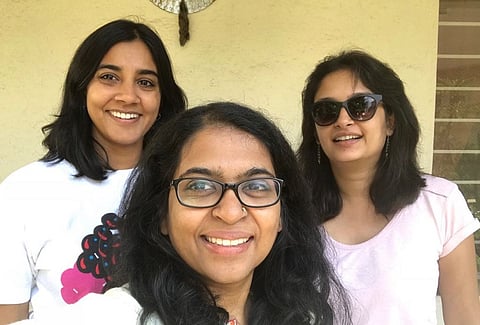

What’s a day like in an anganwadi? India has the most number of stunted children in the world, but what does it mean? You want to work in conservation but don’t think you have the skillset? Is the Indian social sector all about volunteering?
We come across questions like these often – in the media, or even when we are trying to understand Indian developmental issues. And there are no easy answers to these multi-dimensional questions.
However, three women from Bengaluru are on a mission to make social issues and development in India not only much more interesting but also immersive and easier to understand.
Immersive and powerful
Through a podcast In the Field, Radhika Viswanathan, Samyuktha Varma and Priya Desai are dealing with complex intersectional issues like healthcare, conservation, empowerment, education, labour and more.
In the Field is now two episodes old and while the first episode deals with malnutrition and stunting, the second one with conservation.
The beauty of these 20- to 30-minute-long podcasts is their immersive nature.
For instance, the first episode, which came out about a fortnight ago, deals with the issue of stunting by starting out in an anganwadi. As the hosts Radhika and Samyuktha explain what’s happening, you can hear the ambient sound of the anganwadi itself. When the hosts talk about the anganwadi worker measuring the ration and then pouring it into the waiting’s mother’s bag, you hear the rustle of the grains going from the measuring scale to the bag.
Speaking to experts along the way, Radhika and Samyuktha weave together a narrative which looks at the issue not through the sanitation point of view but from the perspective of diet and nutrition.
Another aspect that sets In the Field apart is that through its course, the hosts unravel the issue with you, providing an intersectional but engaging experience which resonates with you. Listen to it here:
The second episode, which talks about conservation, starts by taking you through the story of The Student Sea Turtle Conservation Movement (SSTCN), a student-majority volunteers group in Chennai. You can listen to it here.
Making developmental issues accessible for all
The idea behind In the Field had been around for a while, say Radhika and Samyuktha. “The motive behind this podcast is multi-fold. We do want to deconstruct these ideas to make them accessible for everyone from students and academics to laypersons. People who want to volunteer or are looking for a career in the social sector can also listen in to understand how we work, and the rich conversations that happen in these circles,” Radhika explains.
Once a theme is decided, the trio brainstorm over it, and figure out the experts they need to speak to. The next few days are all about further research and interviews, handled by Radhika and Samyuktha. Priya them helps with editing and scripting and also handles the outreach and marketing for the podcast.
Samyuktha shares that the feedback they have received has been overwhelmingly positive. “Not just Indian academics and students, people from Europe, the US, South and Southeast Asia have also reached out to us. While it helps some of them understand Indian development issues, it resonates with many others,” she says.
Another audience they hope to target are people within the development sector and those aspiring to volunteer or looking for careers in the field. “We want to bring in as many people into the development field as possible because the sector really needs more people from different disciplines,” Priya asserts.
The first edition of In the Field will be ten episodes long, with a new episode releasing every fortnight.
Radhika, Samyuktha and Priya are all in their early 30s, and have significant experience in communication and the social sector. You can read more about their profiles here.